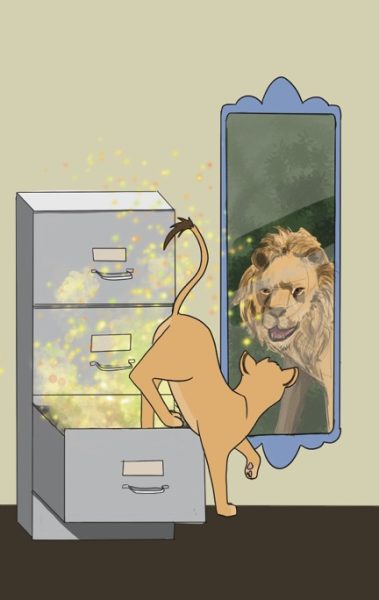A look Into Love and Relationships with Whitman Professors
February 14, 2019
A Look Into Love and Relationship Psychology with Pavel Blagov:
Whitman Assistant Professor of Psychology Pavel Blagov has worked as a licensed psychologist in the Washington area, and has a wealth of experience dealing with relationships and the stressors unhealthy partnerships may cause. He provides individual psychotherapy and explains that, although he does not work with couples clinically, his work one-on-one with patients inevitably involves discussing their relationships.
“It becomes clear very quickly for anyone who is conducting psychotherapy that they will have to understand what healthy relationships look like and what would help people benefit to improve their relationships,” he says.
Blagov explains that the same mechanisms driving a young child to form an attachment with a primary caregiver early on in life are present in the desire to develop a strong partnership later in life, and this likely has served evolutionarily advantageous purposes.
“We are creatures that survive because we bond very strongly to our parents and the same system that creates that bond, the same brain systems that create that bond to the primary caregiver, continue to function as we get older and become adults,” he said.
The majority of Whitman students are in their late adolescence and young adulthood, Blagov explained, transitioning their emotional needs from parents and caregivers to friends and potentially romantic partners.
“They’re actually in the process of making that transition so it is not unusual for people to not have a romantic relationship, or to be exploring romantic relationships without being certain that the dating partner they’re with is going to be the one partner that they stay with in the long run,” he said.
Blagov cautions young adults to be wary of what they may see portrayed on popular culture and in the media.
“Many of us are tempted to draw ideas about how to relate to others from the popular culture, but the popular culture is not always a source of realistic information about what real relationships look like,” he said.
While romantic relationships depicted in popular culture often show healthy examples of relationship formations, Blagov said, the middle and endings are often portrayed as rather tumultuous.
“The general culture is relatively good in terms of teaching us how to start relationships,” Blagov said. “The second stage — the deepening of an ongoing relationship when emotional attachment becomes a factor — is something that I’m not sure that we see as much in the media. The prosaic aspect of spending a lot of good quality time with someone doesn’t create a lot of drama, and it’s not super exciting from the outside.”
To get a more realistic portrayal of healthy ongoing relationships, Blagov recommends individuals reflecting on the supportive and mutually respectful relationships exemplified by those around them, and seeking to find out what those couples do to make their relationships meaningful.
“What researchers have found is that it’s not necessarily the super romantic kinds of things that we see in the popular culture,” Blagov said. “It’s really the ongoing day-to-day interactions — they may be very simple, but they are positive and they are intimate, and by intimate I mean things like physical touch, like sharing your innermost thoughts, and sharing your most intimate feelings with each other.”
When it comes to breakups, Blagov warns young adults to be cautious of what they see in popular culture as well as in real life. He notes that it takes courage and thoughtfulness to “commemorate a relationship that has to end and break it off in a way that’s going to create some good memories and be respectful to both people.”
Blagov wants to dispel the cultural myth that “there is this one special person on the planet, the unicorn that has been ordained for you by the heavens, and that if you don’t meet that one person, you will be miserable and unhappy. Not everyone ends up being in a relationship and people can still have fulfilling and healthy lives.” In reality, Blagov explained, “there are actually numerous people that are right for us.”
Blagov also wants to lessen the worry individuals may feel when it comes to dating.
“People can sometimes idealize or exaggerate how complex the dating skills have to be,” he said. “Dating skills are really conversation skills until the relationship starts to deepen.”
Blagov advises that any Whitman students feeling lonely, in light of the expectations surrounding love and relationships on Valentine’s Day, to reflect on the important individuals they already have involved in their lives.
“My advice would be, instead of following the flock and celebrating in a way that you are being told to celebrate, instead reflect on the uniquely important relationships in your life,” he said. “They are not necessarily the romantic relationships.”
Relationship Advice from Whitman Professors:
“I’ve learned that people want to be heard. So, if you want to be a better partner in a relationship, make sure to really listen to what other people are saying. With that being said, listen to yourself too. If you don’t feel respected in a partnership, get out. Value your own needs and desires. And, finally, if there’s someone you want to become closer with, spend time with them. Familiarity makes the heart grow fonder.” – Erin Pahlke, Professor of Psychology
“Actively practice gratitude for the people you love. Tell them you care about them, and take time to feel that gratitude. You’ll never regret sharing your happiness and appreciation with people you love.” – Alissa Cordner, Professor of Sociology
“I’d tell my kids that you can only be a good partner if you love yourself.” – Erin Pahlke, Professor of Psychology
“You should feel better about yourself when you are with the person you are partnering with. If you feel worse about yourself, there is something wrong. Also, talking is the central component of intimacy. Any physical intimacy without talking is ultimately not that intimate”- Lydia McDermott, Director of the Center for Writing and Speaking and Professor of Composition
“Write letters. Put your thoughts and feelings on paper and send them to your friends and romantic partners. Most importantly, show your friends your love for them as much as you show your romantic partner you love them” -Emily Jones, Professor of German Studies and Environmental Humanities






